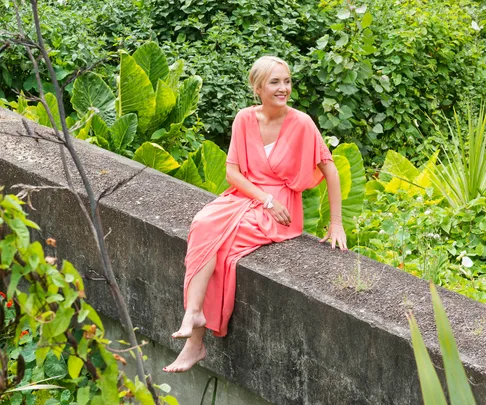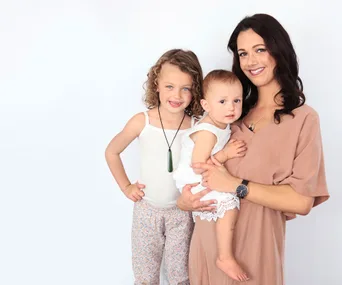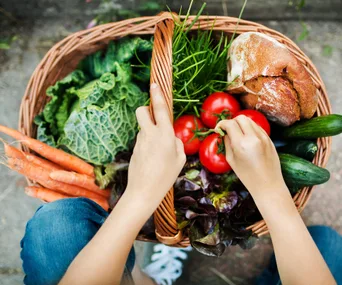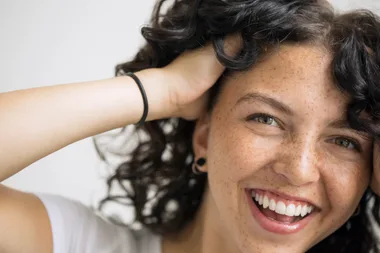When political whiz kid Nikki Kaye was diagnosed with breast cancer six months ago, she resolved to relearn how to take care of herself before she returned to looking after her portfolios and her electorate.
Nikki was only 28 years old when she became the first National MP ever to hold the coveted Auckland Central seat, and just 32 when she was inducted into cabinet. In hindsight, she says she had thrown herself so heavily into her career that she had put aside some of the basics in her own life.
“I was like a teenager; I couldn’t cook, and because I was a minister and had always been driven, I couldn’t drive.”
When Nikki received her diagnosis in September 2016 she went directly to the then Prime Minister, John Key, to resign from her portfolios as Minister of Civil Defence, ACC and Youth. He refused to accept her resignation.
“I was such a mess,” says Nikki, who is speaking to The Australian Women’s Weekly from her central Auckland home. “It happened so quickly and I thought it was the right thing to do, but he said – and you might not be able to print this – ‘You are not f**king going anywhere.’ He was amazing.”
Portfolios were shifted to allow Nikki to take time off for treatment. When she stopped working, she realised how little time she had spent just being at home in the simple Ponsonby villa overlooking a neighbouring urban farm that she shares with a flatmate and two cats.

There, while recuperating, Nikki taught herself to cook and garden and she gave her diet an overhaul.
“I’m learning to appreciate the simpler things in life. I can do the basics of cooking now and I have become a bit of a health freak as well as a hippy. I eat a lot of fruit and veg, drink a lot of water and kombucha and I eat a lot less meat. Every day I think, ‘How am I going to be good to my body today?’
“We all lead these busy lives and we don’t necessarily treasure our greatest asset enough, which is our body.”
Nikki found the lump in her breast while at home on a Saturday in late August 2016. It was the size of a small pea.
“I had a sore arm, which I thought was from texting, and I had been feeling a little bit unwell but I wouldn’t normally check my breasts. I still think it’s a bloody miracle I found it.”
On finding the lump, Nikki rang her uncle, a doctor, who told her to book herself an appointment with a GP immediately. From there she was referred for a mammogram.
“It’s quite blurry that period,” she says, “and still quite raw. I went on the Tuesday for a mammogram and an ultrasound and they weren’t sure, so they did biopsies.”
She received the news on the Friday that she had breast cancer and announced it publicly the following Monday, just over a week after she had found the lump.
“I had managed to tell my immediate family but I had friends who didn’t know and they found out on the 6 o’clock news. My phone almost broke because I had so many messages from people offering everything from diet tips to babysitting my cats.
“So many beautiful people opened their hearts to me and now I have people who have just been diagnosed contact me, and if I can help them, then I do. I think that is a role I will end up playing in the future. In fact, I had a person contact me today – I feel for them, it just brings back those first few weeks.”

She now wants to give back on a national level.
“That was one of the reasons I came back to Parliament – not only am I really passionate about education, but I think there are some things I can do around breast cancer. There’s being aware – knowing what the signs can be in terms of lumps and not mucking around – but our screening also needs to be as robust as possible, and access to medicines is a really important issue at the moment.”
Nikki says one of the best things to come out of having breast cancer is improved relationships with friends and family.
“My family was amazing – I am a lot closer to my mum and my sister, and my brother and stepfather have been amazing too.”
She has returned to parliament this year as Associate Minister of Education and Minister of Youth with a newfound awareness of her own health. She realises her “empathy and drive to help people” means she needs to take extra care of herself.
“I think one of my strengths has always been that I am compassionate and care about people, but if you really want to help lots of people, you have to be happy and healthy yourself. Now I prioritise that and that means I can help more people.
“Being present is really important,” she continues. “My mates and family have said to me that before I was always in a rush and looking at the next thing or the next person I was going to help. I probably didn’t look close enough to home to help the people around me or myself.”
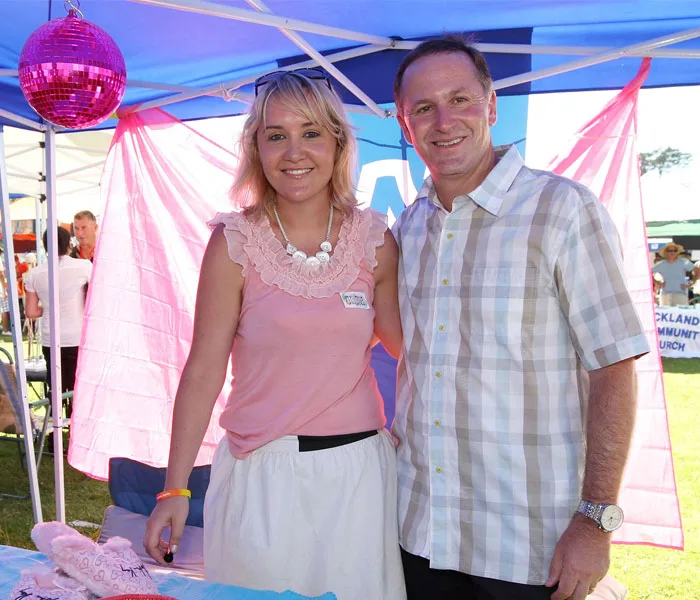
Nikki with former Prime Minister, John Key.
It was family that supported her through the initial shock of her cancer diagnosis, but there were others – even her beloved pets – who were there for her during some of the toughest moments.
“My cats are amazing,” she says of her treasured British shorthairs, which have quite a presence on her social media accounts. “I cried a lot, so having a fur-ball to cuddle in the middle of the night was great.”
While Nikki has focused heavily on her diet and lifestyle as part of her recovery, she says she also had to take a step back to avoid being bamboozled by the masses of – and sometimes contradictory – information available.
“I remember at one point standing in the kitchen eating black seed oil, and then walnuts and then blueberries… and then I’d go off and read something about not drinking too much green tea… It can be overwhelming.”
Nikki is reluctant to go into details about her cancer treatment, but will say she had a variety of treatments and is “now pretty well”.
“The doctors have said I am capable of going back to work. I have had the majority of my treatment, I have a little bit left, but it is fair to say I am feeling pretty good.”
The tenacious MP was raised in Remuera. Her mother and father separated when she was seven – she and her sister stayed with their mother and her brother moved with their father. Nikki had little to do with her father until she was in her 20s.
“I think I also grew up pretty young, because of my parents splitting up, and became independent early in life because of a range of things in the family.”

Nikki has a half-brother and half-sister from her dad’s first marriage before he met her mum, and four half-siblings from his most recent marriage. The Kiwi who was in the news in early February for facing a first-degree murder charge in the US is the son of Nikki’s mother’s partner.
Because the case is before the courts when we speak, Nikki can say little about it.
“It is very difficult and sad,” she says. “He is the son of the man I consider my stepfather (even though he and Mum are not married) and it is really hard.”
Her mother and stepfather met when Nikki was 10 so he has been a big part of her life and, along with Nikki’s grandmother, he helped her hardworking mother put Nikki through private school. While she describes them as swing voters, and not particularly political, she says she was encouraged by them to speak her mind and to “fight for what I believed in”.
Nikki admits initially being quite a “naughty” pupil at high school, but she excelled in athletics, representing Auckland, loved debating and eventually went on to become Head Girl.
It was at Otago University, studying genetics and law, that Nikki became heavily involved in the Young Nats. At her first meeting, she met MP Katherine Rich and was inspired to become women’s vice-chair for the Southern Young Nats.
“Then I was invited to speak at a political conference in 1999 on a remit for lowering the drinking age from 20 to 18. Prime Minister Shipley was there and she said to me, ‘We will lower it this year,’ and our resolution was the one that went to the party conference and helped push it forward. I think I had a taste then of a bit of an ability to make stuff happen.”
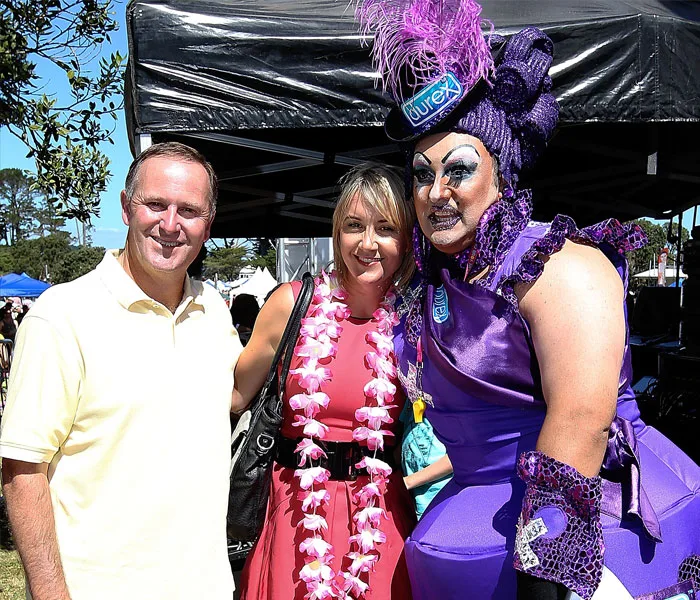
She then moved to Victoria University, where she was offered a job as a researcher for Bill English, and finished her genetics degree while working full time.
“That year we went to the worst election result in the history of the National Party. It was a pretty tough time so I learnt a lot, but I also had a lot of responsibility. I was 22/23 and working on some welfare reform with Katherine Rich and Bill.”
After Bill English was rolled by Don Brash, Nikki headed to the UK on her OE and, over three-and-a-half years, worked her way up in local government and project management roles, which peaked with a job at the Halifax Bank of Scotland.
“I was earning more than I am now as a cabinet minister. I was in London, at 27, and could see I could make a whole lot of money, and I could see that was not going to make me happy.”
Knowing there was a good chance National would win the election in 2008, Nikki left her boyfriend in London and returned home.
“I arrived back on a plane pretty late in the process in December 2007 and thought, ‘I have to give it a crack or I will always be wondering.’ So I came back and saw Bill English and Murray McCully, and said, ‘I’m 27, I know I am really young but I am looking to stand,’ and they were very supportive of that.
“That meant so much to me. I think if they had been negative I may have just got back on the plane to the UK.”
She chose to contest the National Party candidacy for Auckland Central, despite strong competition from within the party.
“I knew that Auckland Central was where my heart was – it was one of the youngest seats in the country, and I felt I was a young professional who was best to represent it, so I started walking the streets of Auckland Central to get the membership numbers I needed.”
Nikki won the nomination, and then caused the upset of the 2008 election when she won the Auckland Central seat against Labour’s Judith Tizard – the seat had been held by left wing parties for 90 years.
Asked what she thinks got her through, Nikki says it was the strength of her conviction.
“I think people could see that I might have been young but I had a very good sense of who I am. You are constantly tested on your views in politics – and if you don’t have the ability to be strong on your position and withstand what may be criticism at times, then it is very difficult. I find New Zealanders respect you regardless of what your views are, as long as they are well thought out and you have the courage of your convictions and can make decisions.”
Nikki says while she has experienced sexism from the public – with people commenting on her looks and what she wears – she hasn’t faced it within the party, which has supported her as a young woman in politics, and also personally when she was sick.
Both John Key and Bill English visited Nikki regularly while she was unwell. She recalls an afternoon the Prime Minister arrived while her nephews were visiting.
“The PM called and said, ‘I am on my way,’ and I was in my running gear and the place was a mess! I jumped in the shower and said to my nephews, ‘The Prime Minister is coming around,’ and they started screaming, ‘The Prime Minister is coming!’ When I got out of the shower they were on Instagram Live going, ‘The Prime Minister of New Zealand is coming to our house,’” she says, imitating their voiceover with a laugh.

John Key’s resignation came as a blow to Nikki, but that was softened by Bill English taking the role.
“I was pretty shocked, but when I got my head around it more and sat down and talked to him, I knew it was the best thing for John personally. Most people saw him as Prime Minister but I also see him as a friend. And I thought, actually, for Max, Stephanie and Bronagh to have given him up for 10 years as leader and eight as Prime Minister is a massive sacrifice.”
Asked if she wants to be Prime Minister herself, Nikki says there are other people better suited to the role. She is aiming high, though, and wants to become Minister of Education this year. But she says while there is a strong chance of getting the role, she is reluctant to pre-empt anything.
It will be a big year, with the election looming, but Nikki has a newfound sense of balance to keep her well. She will spend three days a week in her Auckland Central electorate, where she will care for local issues – as well as her tomato plants and her own health.
WATCH: Behind the scenes with Nikki Kaye
For more from The Australian Women’s Weekly, follow us on Facebook or Instagram.
